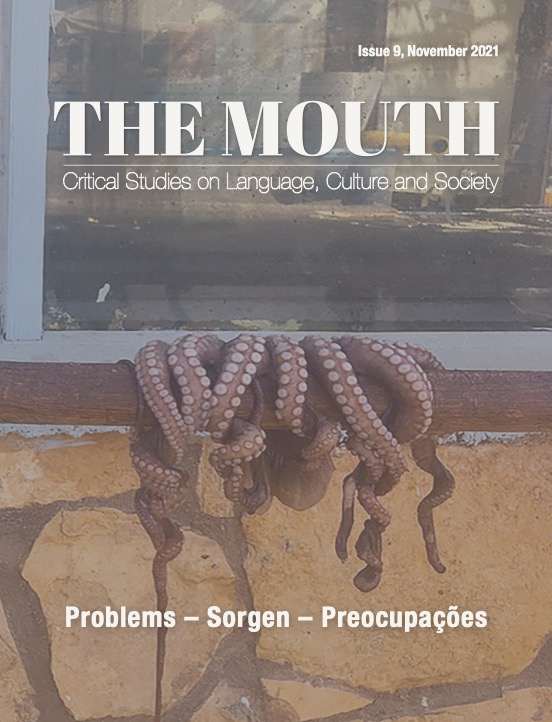Introduction: Problems - Sorgen - Preocupações
DOI:
https://doi.org/10.18716/ojs/the_mouth.3099Abstract
All this could and should have been a time of reflection, of the sound of the tip of a pen moving over paper, of reading books that had been on the list for a long time, of chatting, of playing, of walking. Instead, it turned into a time of frantic screens, of noisy hoorays on the accomplished task of making the university more virtual and more efficient to the costs of all those who deserved better, of the neoliberal and also, unsurprisingly, of unabashed hatred and racism. This time witnessed the production of rubbish and destruction, the creation of plastic copies of feudal monuments, of senseless waste and needless carelessness – and actually, the production of more distance. This bad taste is what gets embraced and dealt with in some detail in this issue of The Mouth. We have put together a collection of papers and other contributions in different formats, which engage with questions around language, and the ways in which we can or cannot use our language, in which the way we speak has become problematic, or is addressing difficult situations. Oftentimes, people seem to choose alternative, artful, indirect or subversive ways of expressing pain, sorrow or critique. This is also reflected in the current issue, where problems are addressed in multimodal, discursive and creative ways. Calling the practices of colonialism and plunder by their name, entering into a conversation on the limitations of sharing in an impoverished community just next to luxurious holiday paradises, speaking of the denial of experiences of violence, writing about ruination and structural racism, addressing the one thing that capitalism produces most, namely garbage: these are the topics of the present issue.
Downloads
Published
Issue
Section
License

This work is licensed under a Creative Commons Attribution 4.0 International License.
CC BY 4.0 deed
https://creativecommons.org/licenses/by/4.0/deed.en
You are free to:
- Share — copy and redistribute the material in any medium or format for any purpose, even commercially.
- Adapt — remix, transform, and build upon the material for any purpose, even commercially.
- The licensor cannot revoke these freedoms as long as you follow the license terms.
Under the following terms:
- Attribution — You must give appropriate credit , provide a link to the license, and indicate if changes were made . You may do so in any reasonable manner, but not in any way that suggests the licensor endorses you or your use.
- No additional restrictions — You may not apply legal terms or technological measures that legally restrict others from doing anything the license permits.
Notices:
You do not have to comply with the license for elements of the material in the public domain or where your use is permitted by an applicable exception or limitation .
No warranties are given. The license may not give you all of the permissions necessary for your intended use. For example, other rights such as publicity, privacy, or moral rights may limit how you use the material.Notice
This deed highlights only some of the key features and terms of the actual license. It is not a license and has no legal value. You should carefully review all of the terms and conditions of the actual license before using the licensed material.
Creative Commons is not a law firm and does not provide legal services. Distributing, displaying, or linking to this deed or the license that it summarizes does not create a lawyer-client or any other relationship.
Creative Commons is the nonprofit behind the open licenses and other legal tools that allow creators to share their work. Our legal tools are free to use.






